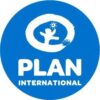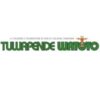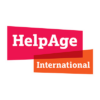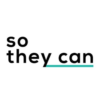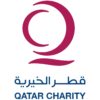Gender and Girls Education Advisor at Plan International
Job Overview
Gender and Girls Education Advisor at Plan International
Full Time
Dar es Salaam (Remote)
Plan International
Plan International advances children’s rights and equality for girls in more than 75 countries.
Gender and Girls Education Advisor at Plan International
The Organisation
Plan International is an independent development and humanitarian organisation that advances children’s rights and equality for girls.
We believe in the power and potential of every child. But this is often suppressed by poverty, violence, exclusion and discrimination. And it’s girls who are most affected.
Working together with children, young people, our supporters and partners, we strive for a just world, tackling the root causes of the challenges facing girls and all vulnerable children.
We support children’s rights from birth until they reach adulthood. And we enable children to prepare for – and respond to – crises and adversity. We drive changes in practice and policy at local, national and global levels using our reach, experience and knowledge.
We have been building powerful partnerships for children for over 85 years, and are now active in more than 75 countries.
Shule Bora Consultancy Terms of Reference
Position Gender and Girls Education Advisor
Output The Gender and Girls Education Advisor is expected to work across all the programme outputs.
Overall objective To support the technical team and government counterparts to apply the gender transformative approaches to designing, developing, and monitoring interventions including implementing some complementary gender and Girls education awareness creation for Shule Bora team as necessary.
Expected results
All intervention, materials, and tools across output are reviewed with a gender lens as per output demand/request;
Inclusion strategy prepared and implemented across the program;
Shule Bora team and key stakeholders have enhanced knowledge, information and awareness on the importance of gender and girls’ education initiatives;
Shule Bora team and key stakeholders trained in gender transformative strategies and supported to embed strategies and approaches in their activities;
Provided on-demand technical advice to LGAs on Gender and Girls’ education interventions design, implementation and adaptation, and learning plans.
Reporting to Technical Lead – Girls Education, Plan International
Location Home-based, but with travel to programme locations in Tanzania is expected
Timeframe of inputs (s) 1 October 2022 to 31 March 31 2023
No. of Days and fee rate Up to 64 days, maximum
Updates to the number of maximum days to be confirmed upon successful recruitment
The consultant will be paid a daily fee once the deliverables and timesheets are approved. Applicants should specify their daily fee rate in their cover letter. Please place ‘0’ in the salary expectation section of the application.
Introduction
Cambridge Education (CE) is the technical assistance delivery partner for the FCDO-funded Shule Bora programme which runs from August 2021 to March 2027. The programme will be implemented with core partners Action on Disability and Development (ADD), Plan International, and the International Rescue Committee (IRC) and a number of associate partners. The programme will work in partnership with the Ministry of Education, Science and Technology (MOEST), President’s Office for Regional and Local Government and Administration (PO-RALG) and related agencies to achieve its outcomes.
Programme Overview
The UK aid funded Shule Bora programme aims to improve the quality of pre-primary and primary schools in Tanzania. The programme’s Impact Statement is: Shule Bora will deliver improved quality, inclusiveness, and safety of learning for boys and girls. There are four outcomes:
Learning: All children* are learning in school.
Teaching: UKAID supports the strengthening of Tanzania’s teaching workforce.
Inclusion: All children are in schools that are safe, offer an environment conducive to learning and that this enables children to complete primary education and progress to secondary education.
Systems building: UKAID supports government in strengthening the value for money of education provision at school, local and national level.
This programme:
Works with Ministry of Education, Science and Technology (MOEST) and the President’s Office Regional Administration and Local Government (PO-RALG) to test, adapt and implement at scale quality, gender-transformative, disability-inclusive and safe to learn education approaches in nine regions, generating learning and evidence on how to achieve these outcomes affordably and at scale. The nine regions that have been selected for Shule Bora support are: Dodoma, Katavi, Kigoma, Mara, Pwani, Rukwa, Simiyu, Singida, and Tanga.
Supports GoT with the timely and effective implementation of the Payment for Results (PforR) mechanism through technical assistance and capacity building, with a strong focus on data verification, financial management and risk management. Support lesson learning processes from PforR so that these can be embedded into government processes and shared with development partners and other key stakeholders. Ensure that lessons and best practice from (1) are used to inform the PforR mechanism.
Manages and coordinates programme activities, with a strong focus on (i) ensuring a high quality programme and financial and risk management oversight, (ii) working with an independent Learning and Evidence (L&E) provider on establishing regular, rigorous and community-driven monitoring and evaluation activities, and (iii) developing and implementing a strategy for effective communication of Shule Bora objectives, results, and lessons learned to a range of target audiences.
Specific Aims
The Gender and Girls Education Advisor is expected to support across the outputs and interventions, including reviewing guidelines and modules accordingly, and support interventions relating to the achievement of the DLRs. The Gender Adviser will work closely with the Girls Learning Technical Lead on the development/adaptation of parent-teacher-partnerships (PTP) assessment tools, review the PTP existing materials, and adapt/ develop the PTP Training module to be piloted and rolled out by end of Year 1.
The Gender and Girls Education Advisor will also be supporting the GEDSI survey under output 1B. This work requires engaging with Girls Learning Technical Lead and other core partners to input the survey terms of reference, tools, and report for the GEDSI survey as well as input the inclusion strategy for Shule Bora. This work is linked to a rapid GEDSI desk review completed during the Shule Bora inception period where gender norms and social inequalities were examined (referenced above). Findings from the rapid analysis have been used to develop a draft inclusion strategy. However, the fieldwork and analysis of GEDSI were planned to take place in Year 1, both the rapid desk review and survey aim at assessing how gender and social inequalities may impact the activities and outcomes of the programme so as to inform the Shule Bora inclusion strategy and intervention design.
The Gender and Girls Education Advisor is expected to review, design, and input various documents across other outputs and interventions to ensure gender aspects are well-reflected, and integrated into deliverables throughout the programme. The rationale and timeline for the adviser’s engagement will be communicated as required.
Generally, the assignments above are designed to ensure that the Gender and Girls Education Advisors technical expertise in the areas of gender transformative approaches, community and government engagement, are practically utilized to improve materials, tools and interventions. The focus of the work is around scaling up the capacity and knowledge around best practices targeting gender in education for the Shule Bora team and key stakeholders. The gender work should influence how the programme empowers parents, community members, learners, and teachers to contribute to supporting girls, boys, and children with special needs to bet enrolled, retained and successfully complete primary schools, and transition into secondary.
Key stakeholders
Shule Bora core program team specifically technical leads (Plan International, ADD, IRCi & CE), Shule Bora Coordinators, MoEST & PO-RALG at the center at the Regional level (9SB Regions)]. The adviser’s main contact will be the Girls Learning and Community Engagement Technical Lead
Scope of work / Tasks
Subject to change depending on work plan status and starting date of consultancy. An update will be provided at the interview and contracting stage.
Si.No Task Max. Expected Days
Output 1: Parents and communities support learning of all primary-age children and hold primary schools to account
1a – Support to parent teacher partnerships to improve community engagement in supporting inclusive schools
1 Review and input the first draft of the Inclusion Strategy 3
2 Review and input the PTP draft module 2
3 Review and input PTP rapid assessment tool and concept note for PTP module and PTP Assessment activity 2
4 Actively participate and lead sessions (as relevant) in a technical workshop to review and input into the PTP modules and refine the PTP module into a final document 6
1b – Increase community awareness on importance of access to and attendance in quality inclusive schools
5 Tool development for GEDSI and GEDSI TORs review
Input the GEDSI Survey TORs and lead in adapting Plan International Framework and adapt tools for measuring Gender norms/inclusion and in-cooperate the adapted tools/ thoughts in the draft GEDSI survey tool (Working with
Plan team and ADD Advisor)
6 Provide inputs (including data analysis, narrative contributions and tangible recommendations) for the GEDSI Survey report and evidence document 4
7 Actively participate and lead sessions (as relevant) at the GEDSI validation workshop 2
8 Provide inputs (including gendered analysis from the GEDSI report, narrative contributions and tangible recommendations) for the Inclusion Strategy 5
Output 2: Primary teachers are supported to improve the inclusion, safety and learning of all children
2b – Improved learning in early grades
9 Provide inputs to test the module for teaching and learning English, and any other document that will be required to be reviewed to include gender and girl education. 5
Output 3: Primary schools are well-managed and accountable to their stakeholders
10 Output 3a – Capacity building to WEOs and HTs to strengthen school management, supervision and accountability
11 Provide gender and girls education performance indicators and criteria for head teacher (HT) management 1
12 Provide input into school committee orientation packages so they are inclusive to a gender and girls education lens 1
13 Review and provide into input into training modules for school management, ward education officers (WEO) and head teachers (HT), providing follow up training where required. 2
Output 3b – Strengthening safety of pupils in schools
14 Review and input on rapid assessment data collection tool on current practices in reporting mechanisms in selected schools and communities, and any other document that will be required to be reviewed to include gender and girl education. 2
Output 4: Education authorities at the local and regional levels are supported to better plan, manage and support primary schools and teachers
15 Reviewing and inputting into documents and tools that will be required to be reviewed to include gender and girl education lens. 3
Output 1-5, Cross Cutting
16 Demand driven support across all five outputs, communication, MEL, EPforR and Teachers Service Commission (TSC) interventions of the programme, for issues relating to gender and girls education, reviewing materials, tools and documents as requested 8
17 Actively participate and share progress and key feedback within Plan International an Shule Bora meetings, Shule Bora core team members, and partners as required- meetings will be cumulatively by hours. 4
18 Provide training for Shule Bora team and key stakeholders to improve their knowledge and awareness of gender transformative strategies and practical approaches that can be applied in the SB programme. 4
Education Programme for Results Additional Funding (EPforR)
19 Demand driven support for EPforR component for issues relating to gender and girls education 5
Skills
Strong public presentation skills and ability to represent the programme to a variety of audiences ranging from government representatives, donor, academic institutions.
Advanced report writing skills.
Ability to prioritise and work under pressure
Ability to work in a collaborative team setting
Understanding of and sensitivity to cultural differences
Proficient in using MS packages, particularly Word, Excel, PowerPoint, Teams, Sharepoint
Strong organisational skills, reliability, and adherence to ethical standards
Excellent verbal and written communication skills
Fluency in written and spoken English, Kiswahili preferred
Experience
An understanding of – and commitment to – community engagement for inclusive education
Extensive technical knowledge in the thematic area of girls’ education and learning, including knowledge of recent global evidence and best practice as to what impacts girls’ learning, ideally with other inclusive thematic areas such as disability and safety.
Extensive knowledge of various strategies and interventions to support girls’ retention, progression and learning is essential
Experience of liaising with and supporting government to deliver education strategies at different levels of the education system as part of an education ‘systems strengthening’ approach
Expertise in coaching and guiding national teams as part of a programme design processes or throughout a project inception period
Ability to build supportive, respectful, collaborative relationships at a distance
Extensive experience of leading and/or advising on gender-transformative programmes at different stages of the project process including design, implementation, monitoring and learning
Experience of working on large complex donor-funded education programmes, ideally FCDO/DfID contracts
Experience of working in Tanzania or other East African country with a similar context and a strong understanding of the contextual challenges faced by girls and communities in the country
A minimum of 15 years’ experience of working in gender and education
Familiarity with girl-centred, participatory approaches to data collection
Experience in supporting the design of both qualitative and quantitative M&E tools to capture changes in girls’ perceptions and experience of education
Good understanding of the Tanzanian education system
Knowledge, Education and language
Advanced degree in a relevant field ie Gender Studies, Gender and Development, Gender and Education, Development Studies, or Sociology
Fluency in English – both spoken and written
Knowledge of Swahili and other local languages would be an advantage.
Experience in capacity development
Experience in large-scale, international development projects
Experience with stakeholder engagement from schools to government levels
Plan International’s Values in Practice
We are open and accountable
Promotes a culture of openness and transparency, including with sponsors and donors.
Holds self and others accountable to achieve the highest standards of integrity.
Consistent and fair in the treatment of people.
Open about mistakes and keen to learn from them.
Accountable for ensuring we are a safe organisation for all children, girls & young people
We strive for lasting impact
Articulates a clear purpose for staff and sets high expectations.
Creates a climate of continuous improvement, open to challenge and new ideas.
Focuses resources to drive change and maximise long-term impact, responsive to changed priorities or crises.
Evidence-based and evaluates effectiveness.
Gender and Girls Education Advisor at Plan International
We work well together
Seeks constructive outcomes, listens to others, willing to compromise when appropriate.
Builds constructive relationships across Plan International to support our shared goals.
Develops trusting and ‘win-win’ relationships with funders, partners and communities.
Engages and works well with others outside the organization to build a better world for girls and all children.
We are inclusive and empowering
Seeks constructive outcomes, listens to others, willing to compromise when appropriate.
Builds constructive relationships across Plan International to support our shared goals.
Develops trusting and ‘win-win’ relationships with funders, partners and communities.
Engages and works well with others outside the organization to build a better world for girls and all children.
Location: Home-based, but with travel to programme locations in Tanzania is expected
Reports to: Girls Learning Education Technical Lead
Grade: D2
Closing Date: 20th September, 2022
Equality, diversity and inclusion is at the very heart of everything that Plan International stands for.
We want Plan International to reflect the diversity of the communities we work with, offering equal opportunities to everyone regardless of age, disability, gender reassignment, marriage and civil partnership, pregnancy and maternity, race, religion or belief, sex or sexual orientation.
Plan International is based on a culture of inclusivity and we strive to create a workplace environment that ensures every team, in every office, in every country, is rich in diverse people, thoughts, and ideas.
We foster an organisational culture that embraces our commitment to racial justice, gender equality, girls’ rights and inclusion.
Plan International believes that in a world where children face so many threats of harm, it is our duty to ensure that we, as an organisation, do everything we can to keep children safe. This means that we have particular responsibilities to children that we come into contact with and we must not contribute in any way to harming or placing children at risk.
A range of pre-employment checks will be undertaken in conformity with Plan International’s Safeguarding Children and Young People policy. Plan International also participates in the Inter Agency Misconduct Disclosure Scheme. In line with this scheme we will request information from applicants previous employers about any findings of sexual exploitation, sexual abuse and/or sexual harassment during employment, or incidents under investigation when the applicant left employment. By submitting an application, the job applicant confirms their understanding of these recruitment procedures.
Please note that Plan International will never send unsolicited emails requesting payment from candidates.


